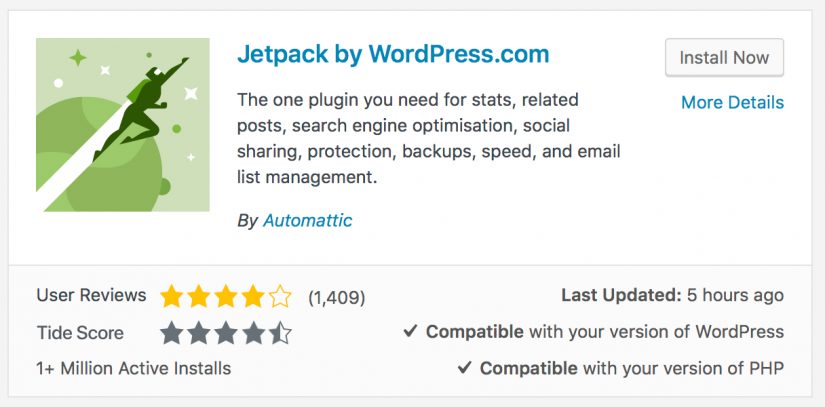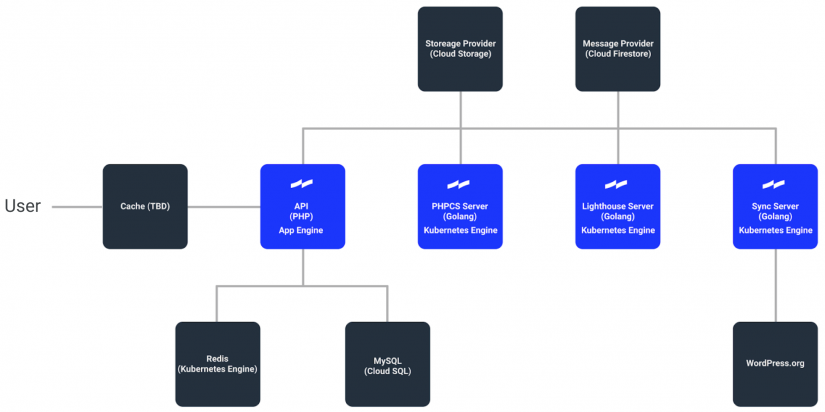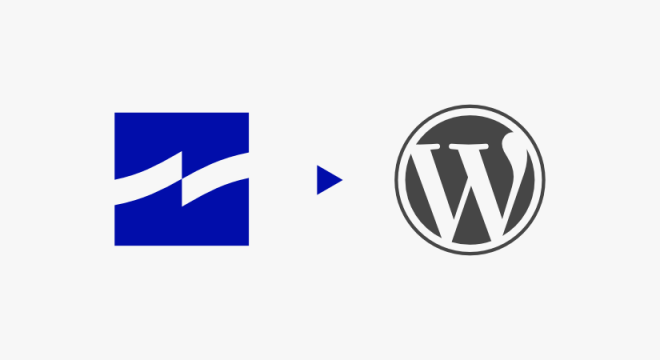Last November, XWP published a preview of an intriguing Tide project which aims to improve the quality of code in WordPress themes and plugins. The company works with the support of Google, Automatic and WP Engine to create a new service that will help users make better decisions when choosing plugins and encourage developers to write better code.
Marketing Manager XWP Rob Stinsonsummarized the direction of the project as follows:
“Tide is a service, consisting of an API, Audit Server, and Sync Server, working in tandem to run a series of automated tests against the WordPress.org plugin and theme directories. Through the Tide plugin, the results of these tests are delivered as an aggregated score in the WordPress admin that represents the overall code quality of the plugin or theme. A comprehensive report is generated, equipping developers to better understand how they can increase the quality of their code.”Rob Stinson Marketing Manager XWP
The announcement of XWP also included a screenshot of how this data can be presented in the WordPress plugin directory:

Beta version of the Tide 1.0.0 was presented on June 27, 2018. It’s now available on GitHub and wptide.org. Naturally, a project that can have a significant impact on the ecosystem of plugins and causes a lot of questions about who is behind all this and what is the criteria for evaluation.
Architecture Diagram
The diagram below displays the Google Cloud Platform (GCP) components, Tide services components, and pending link with WordPress.org for the PHP Compatibility integration.

Currently, with Tide you can:
- search for plugins & themes on this site and see their audit reports
- install Tide locally
- deploy Tide to Google Cloud Platform
In the future, Tide project will be available as a service for testing your plugins or themes during development.
How Can Developers Get High Scores on Tide Rating System?
According to Luke Carbis, Director of Product & Innovation at XWP, there are three fundamental steps:
- Learn and follow the coding standards
You need to study the Coding Standards on the WordPress Codex. Concentrate on identifying a few changes you could make to your existing coding habits. Revisit the Codex regularly to see if there’s something else you could improve.
- Peer code review
Ask peers, mentors, and experts to review your code. Try to find opportunities to review other developers’ code, too. GitHub has a great code review feature, so make use of it.
- Revisit and refactor old code
Refactoring the old code is one of the best ways to keep an old codebase clean, while at the same time strengthening all the new knowledge you’ve learned since writing it.
To Conclude
Tide project is still in development and needs to be worked on. However, there is no doubt that it will have a huge impact on WordPress plugins and themes ecosystem. So, it is in WordPress developers’ best interests to get involved in the testing and implementing it as soon as possible.






























